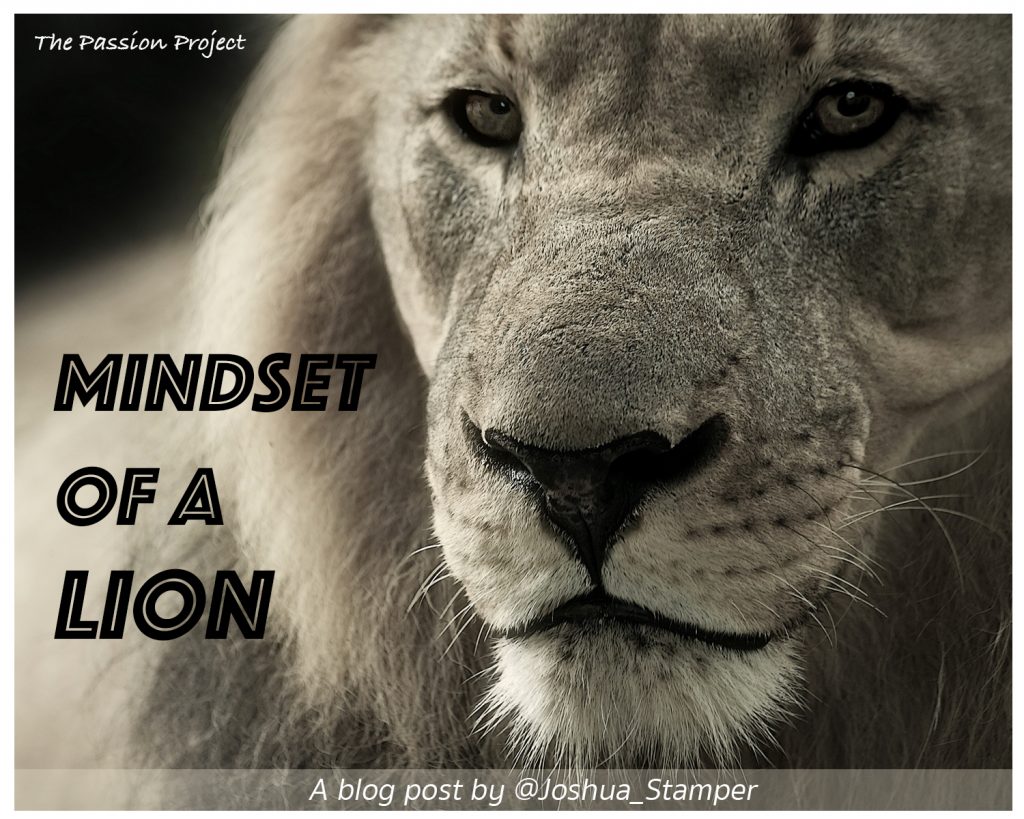Mindset of a Lion

“I never lose. Either I win or I learn”- Nelson Mandela
About a year ago, I discovered an inspirational quote from Nelson Mandela on Twitter, which was written on a photograph of a lion walking through long safari grass. The quote and image immediately caught my attention, as it captured important characteristics of success: strength, competitiveness, grit and a growth mindset. As I reflected on the quote, it quickly challenged my past educational experiences, prior educational struggles, and my current beliefs as an administrator. Little did I know, the quote would become the motto I use as motivation for myself, my students and my own children going forward.
As a student, my perspective of education was extremely negative as I often experienced unsuccessfulness in the established learning environment. In my adolescent view, school was a mandatory placement where the material, procedures, and system provided little value. The presented content was often detached from real world application, classes were teacher directed, differentiation rarely occurred, retesting and late work were not allowed, and the classroom setup wasn’t conducive to many individual learning styles. As a traditional system, there were few opportunities for recovery and I found myself doubting my ability as a learner, which led to a dismissive and uninspired work ethic.
Late in my high school career, many students were looking at college and deciding where they were going to enroll. In the back of my mind, I figured college would be an option once I graduated but I had serious reservations of continuing my education. Unfortunately, my grades didn’t reflect college readiness and I didn’t have any realistic plan for my educational future. The lack of intrinsic motivation and work ethic changed dramatically as I received an inadvertent challenge by my guidance counselor. Toward the end of my junior year, I was called into the counselor’s office to discuss my grades and my future. The meeting involved the counselor displaying my grades, explaining how I wouldn’t achieve any success in high school, and professing that I would not get into any state, private, or community college, especially the private university I had interest in. Although the experience lacked tact, the meeting created a burning drive and desire to prove the negative perception as incorrect. The strong emotions produced by the meeting created an unstoppable force of extrinsic motivation, which still exists today, to learn, to grow, and to confirm I am more than a grade.
During my experience as an educator, I often see a system trying to motivate through extrinsic motivation and students who continue to define themselves and their learning ability by their negative grades, which creates the question:
How are we motivating our students to continue through adversity, failure, and setbacks to become life-long learners?
Lately, I have been reflecting on Nelson Mandela’s quote, which continues to challenge me to find opportunities to allow students, without penalty, to freely embrace challenges, persist through setbacks, and accept failure as a pathway to mastery. At our campus, we have created a system for grade recovery, implemented aspects of standard based grading, and established homework as practice instead of a requirement. Although each of these items has strengthened our student’s mindset and educational experience, our grading system is still defining our student’s motivation, perceptions and goals.
Are grades providing the most effective form of feedback to communicate student growth, effort, and mastery? Do grades produce intrinsic motivation or engagement for our students?
In adopting traditional evaluation practices, without modifications, we allow and accept failure as a defining student characteristic. The learning environment shouldn’t be about fixed extrinsic factors. Instead, it should be about inspiring and instilling a desire to learn, confidence to try again, and a belief in improving ourselves. We must provide opportunities for recovery in times of doubt and adversity. It’s our responsibility, as educators, to create a mindset and a culture for each child to either win or learn.


